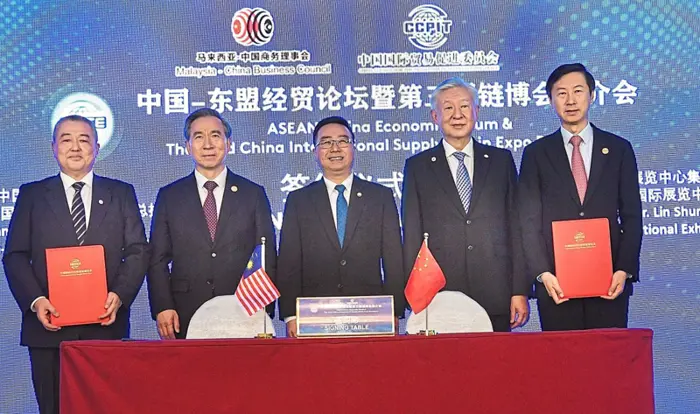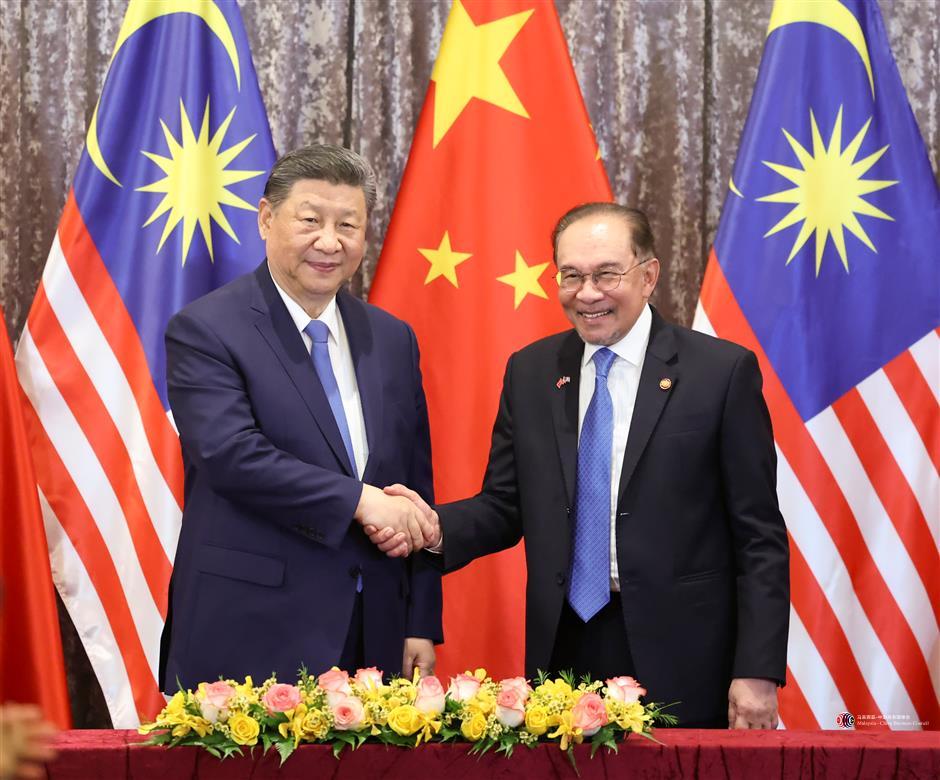
China’s Alibaba Group is to set up a trading and logistics hub in Malaysia as part of its efforts to establish an electronic world trade platform that it hopes will help create a modern version of the ancient Silk Road trade route.
The Malaysian “e-hub” will comprise a regional logistics centre near Kuala Lumpur International Airport and an accompanying electronic platform that will enable its users – primarily small- and medium-sized enterprises (SMEs) – to conduct cross-border trade without cumbersome bureaucratic hurdles.
Alibaba said the Malaysian project – set up in collaboration with the Malaysia Digital Economy Cooperation (MDEC) agency – was the first of its kind outside the e-commerce giant’s home base in Hangzhou ( 杭州 ).
The hub, to be developed by the end of 2019, would “function as a centralised customs clearance, warehousing, and fulfilment facility for Malaysia and the region, to deliver faster clearance for imports and exports,” said Alibaba, the owner of the South China Morning Post. The company did not provide details on the value of its investment in the project.
Alibaba’s Jack Ma ranked No 3 in global tech innovation visionary survey by KPMG
Speaking at the project’s launch in Kuala Lumpur, Alibaba’s executive chairman Jack Ma said the platform would help small businesses and emerging countries benefit from a modern version of the Silk Road – the ancient network of trade routes that for centuries stretched from Japan to the Mediterranean.
“For human beings the first globalisation was the Silk Road… today in the Internet [age], I think we should transfer the Silk Road to an e-road,” Ma told an audience that included Malaysian Prime Minister Najib Razak, cabinet ministers and prominent business leaders. “The e-road is to connect every country. The e-road is to give inclusive opportunity for everybody,” he said.
Ma’s comments come as Beijing looks to further international cooperation in its multibillion dollar “One Road, One Belt” initiative, which seeks to resurrect the ancient Silk Road trade routes in a China-centred trading network linking Eurasia and Africa through enhanced transport, communication and cultural links. A summit involving the leaders of countries involved in the initiative will be held in May.
Malaysia’s trade minister Mustapa Mohamed said the government’s efforts to convince Alibaba to set up an e-hub in the Southeast Asian country showed it supported Beijing’s belt and road initiative “through not only words but deeds”.
Alibaba bets big on cloud expansion to drive global growth
“The e-road or the new Silk Road is going to get our SMEs even more closely integrated with the global value chain,” Mustapa told the South China Morning Post on the sidelines of the launch ceremony.
The minister said the government hoped the project would boost the contribution of the country’s 650,000 SMEs to exports from the current 18 per cent to 23 per cent.
And Badlisham Ghazali, the managing director of Malaysia Airports Holdings, said the development of the hub – which will be sited within the sprawling KLIA Aeropolis complex – was an indication that governments and companies were realising that SMEs could not be left out of globalisation.
“Trade moves not just from country to country but between the SMEs, which make up some 90 odd per cent of companies in Southeast Asia,” Badlisham said.
Agreements signed on Wednesday between Alibaba affiliates and Malaysian state agencies will also develop e-payment and financing opportunities for Malaysian small businesses.
Meanwhile, technology startups in Southeast Asia’s third largest economy will benefit from training via Alibaba Cloud, the technology company’s cloud computing arm.
Ma said last year his ambition was to help build a global network of e-hubs that together would make up an electronic world trade platform (eWTP).
The Malaysia project is a key milestone in realising that vision.
“The first e-hub under the eWTP outside of China will go a long way towards making global trade more inclusive and provide much needed support for a hugely important constituent: SMEs and the younger generation,” he said before the launch.
The 52-year-old founder of Alibaba has previously said the global network –which would complement the World Trade Organisation – could take up to up three decades to complete.
In a visit to Australia in February, Ma talked to Prime Minister Malcolm Turnbull about the creation of an e-hub there.
Daniel Zhang, Alibaba’s chief executive, said the company was “discussing very actively” the establishment of a third hub, but did not provide further details.
Source: South China Morning Post, 23 March 2017



